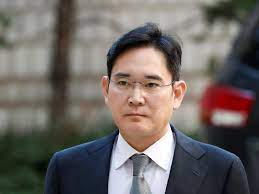Samsung Partners Gates Foundation to Develop ‘Reinvented Toilet’
Global tech giant Samsung in partnership with The Gates Foundation has developed a ‘reinvented toilet’ that has the capability to kill pathogens and safely dispose of human waste.
According to Samsung the new toilet also recycles and safely disposes of humans.
The South Korean tech giant was responding to the foundation’s Reinvent the Toilet Challenge that started in 2011, which aims to develop cost-effective toilets that can deliver inclusive sanitation services without the need for sewage treatment systems.

The company’s advanced research arm Samsung Advanced Institute of Technology had been working with the Bill & Melinda Gates Foundation since 2019. The institute recently completed the development of core technologies and made a prototype of the toilet that has gone through a user test, Samsung said.
Read also: Chip War: Samsung Beats TSMC to 3nm Production
According to Samsung, the toilet, aimed for household use that meets the performance requirements of the foundation, comes with heat-treatment and bioprocessing technologies to kill pathogens from human waste and the released material is safe for the environment.
The treated water can be fully recycled, while the solid waste is dried and combusted to ash and the liquid waste is purified, Samsung said. The company added that it plans to offer licenses of patents related to the toilet for free to developing countries during commercialization.
According to the South Korean tech giant, Samsung’s initiative to develop the toilet was started by Samsung vice chairman Jay Y Lee, the de facto leader of the conglomerate, who met with Bill Gates earlier this month to discuss the progress of the project.
Lee shared his commitment to using Samsung’s technologies to help “address the challenges facing humanity,” the company added.
Read also : 2020 Fintech Challenge
Samsung has announced multiple corporate social responsibility projects in recent years. At Unpacked in February, the company said it was incorporating materials made from discarded fishing nets to make its Galaxy devices.
Last year, the company said it was repurposing used Galaxy phones and modifying them into eye care devices for use in underserved communities around the world.
Kelechi Deca

Kelechi Deca has over two decades of media experience, he has traveled to over 77 countries reporting on multilateral development institutions, international business, trade, travels, culture, and diplomacy. He is also a petrol head with in-depth knowledge of automobiles and the auto industry



